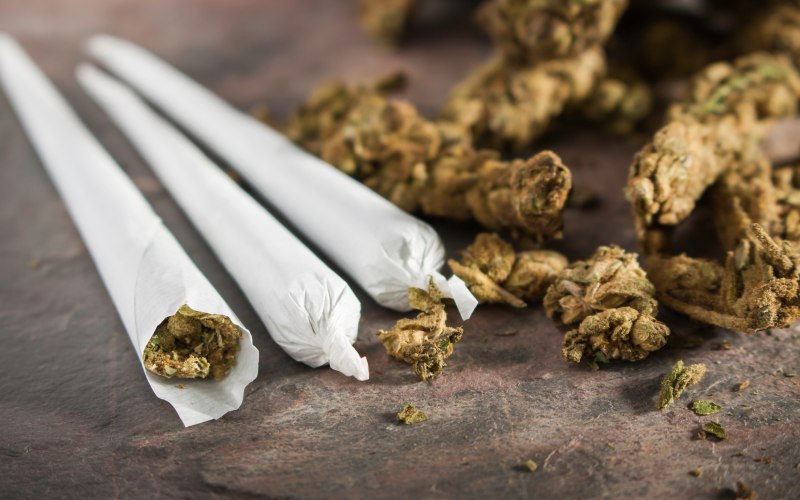
Written by:

Medically Reviewed by:
Last Updated:
October 13th, 2025
Cannabis Addiction
What is cannabis?
Cannabis comes from the Cannabis sativa plant and is used in several different forms: dried flower, resin (hash), oils and increasingly, high-potency concentrates. The chemical most people know is THC, which produces the “high” that most people will try to achieve. Another compound in the cannabis plant, CBD, is often highlighted for potential therapeutic benefits, but most recreational cannabis use in the UK is centred around THC.
The plant itself has a long history in medicine, textiles and culture, but today it is classified as a Class B drug in the UK. Possession can still carry legal consequences, even though conversations around decriminalisation and legalisation frequently resurface. Beyond legal status, what matters most is understanding how cannabis use can move from occasional to something far more difficult to step away from.
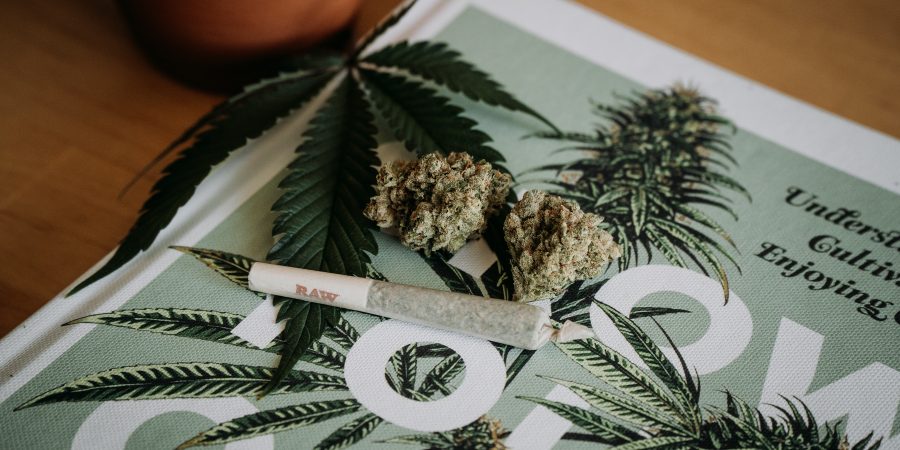
Why would someone start using cannabis?
As is the case with any drug use, there are plenty of reasons why someone would start using cannabis. It’s rarely just a matter of chance with most people having a reason, even if they don’t fully recognise it at the time. Here are some of the most common ones.
Self-medication without guidance
For many, cannabis begins as a way to cope with stress, anxiety, low mood or even ongoing pain. It feels like a shortcut to relief, but the problem is that most of this happens outside of medical care.
The cannabis being used is often bought illegally, with no clear knowledge of strength or contents, and this brings risks of both dependence and worsening mental health.
Regulated prescriptions
Some people are introduced to cannabis through legitimate medical routes. Since 2018, specialist doctors in the UK have been able to prescribe cannabis-based medicines for certain conditions such as severe epilepsy, multiple sclerosis or chemotherapy-related sickness. The numbers are still small on the NHS, but privately, more than 89,000 prescriptions had been signed by 2022. These medicines are tightly controlled and monitored, yet their availability has brought cannabis into people’s lives in a very different way than street use.
Peer influence
For teenagers and young adults, especially, cannabis is often introduced in groups where its use is seen as normal or even expected. Studies have shown that young people with friends who use cannabis are far more likely to try it themselves. Sometimes it’s direct encouragement, sometimes it’s just not wanting to feel left out. Either way, peer influence remains one of the strongest gateways to use.
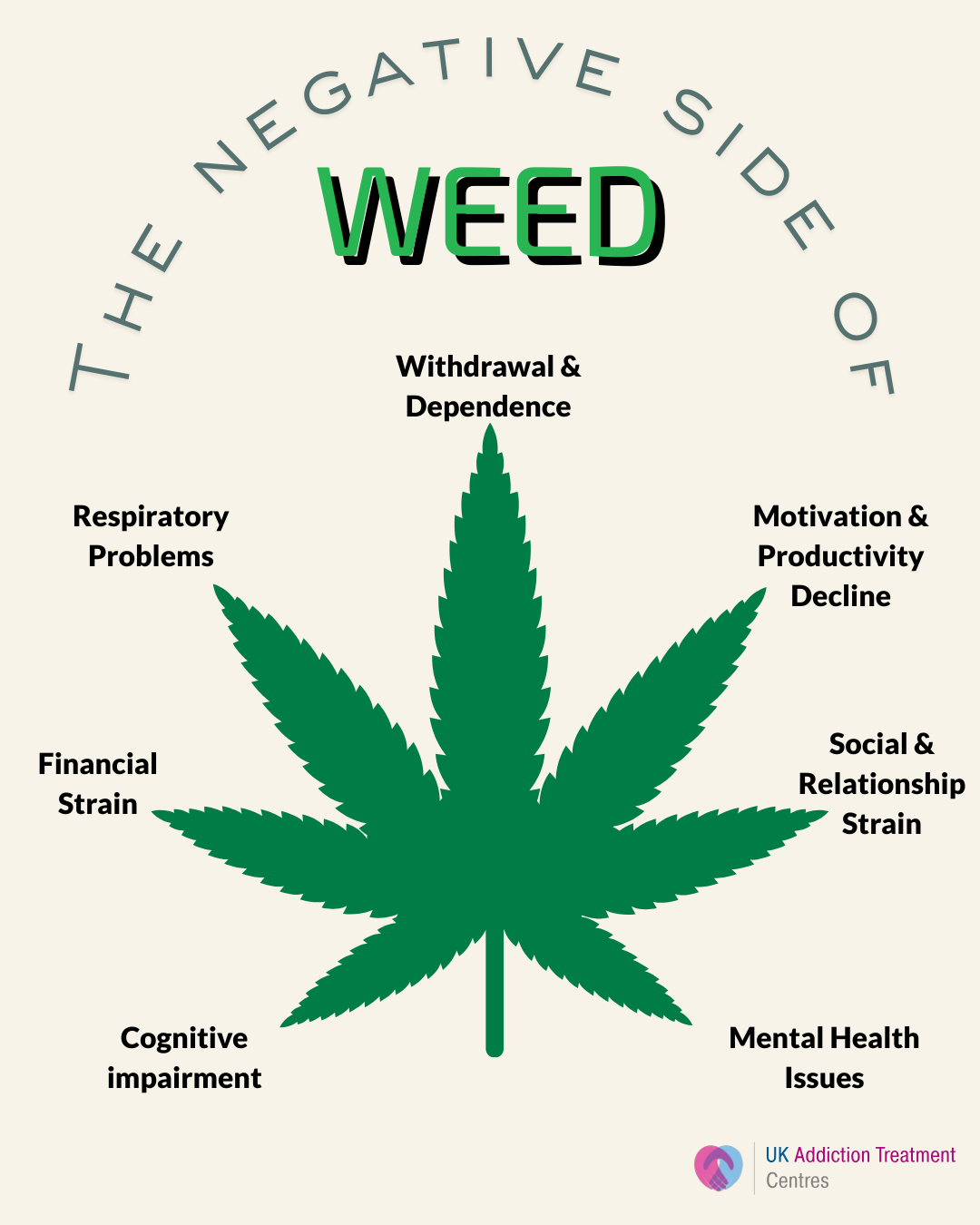
Can I get addicted to cannabis?
Cannabis often carries the reputation of being non-addictive, perhaps even a “soft drug” that doesn’t really cause problems. The reality isn’t so simple. While it doesn’t create the same physical dependence as alcohol or opioids, people can and do develop an addiction.
For many, cannabis use starts with curiosity or as a way to relax, but over time, tolerance builds, meaning you need more cannabis to feel the same effect. Once you reach that stage, daily use isn’t unheard of. The problem here, however, lies in the realm of regular/frequent usage. Put simply, if you’ve been using cannabis for a long time, stopping isn’t as simple as putting it down.
Trying to cut back can bring irritability, broken sleep, anxiety and low mood. These withdrawal symptoms are real, and they make quitting much harder than expected. That’s why cannabis addiction rarely looks like an immediate collapse. Instead, it’s a gradual slide into a cycle where the relief or escape cannabis once offered becomes something you rely on to function.
Cannabis addiction rarely looks like an immediate downward spiral. Instead, it can cause a slow drift into a pattern where the calm or escape from cannabis once provided becomes something you rely on to feel level.
Is a cannabis addiction damaging?
If you’ve made it this far into the article, you might be thinking that an addiction to cannabis doesn’t sound too serious. A little irritability or restlessness without a joint? Some people may even feel the benefits outweigh the drawbacks. The reality, though, is very different. Below, we explore some of the ways cannabis addiction can cause real harm.
Mentality shifts
The effects of cannabis make people relax; that much is clear. But there comes a point where too much relaxing starts to blur into something more concerning. If studying feels impossible, work performance slides, relationships become strained, and long-term goals lose their shine, it’s a sign cannabis is taking more than it’s giving.
The difficulty is that cannabis can leave people feeling oddly content with doing nothing, and while that doesn’t look dangerous in the moment, the knock-on effects creep in over time, and that’s when the damage starts to show.

Mental health issues
Heavy cannabis use, particularly with high-potency strains, has been linked with cannabis induced psychosis, and daily use raises the risk further compared with those who don’t use at all. Not everyone will experience this, but for people with a family history of conditions like schizophrenia, bipolar disorder or severe depression, cannabis can act almost like a trigger that brings those vulnerabilities to the surface.
Issues with using cannabis from a young age
For people who start using cannabis at a young age, the risks are even higher. The brain is still developing through adolescence and regular cannabis use during that time can leave lasting problems, such as:
- Difficulty thinking and problem-solving
- Problems with memory
- Reduced coordination
- Difficulty maintaining attention
As we can see, starting cannabis use early can set patterns that follow a young person well into adulthood. That’s why delaying use or avoiding it altogether is so important during these formative years.
Cannabis myth-busting
With public views on cannabis becoming more relaxed in recent years and many people speaking out in favour of legalisation, it’s no surprise that supportive arguments are everywhere. We’re not saying every positive claim about cannabis is false, but some are myths or misrepresentations that keep coming up.
Let’s look at a few of them:
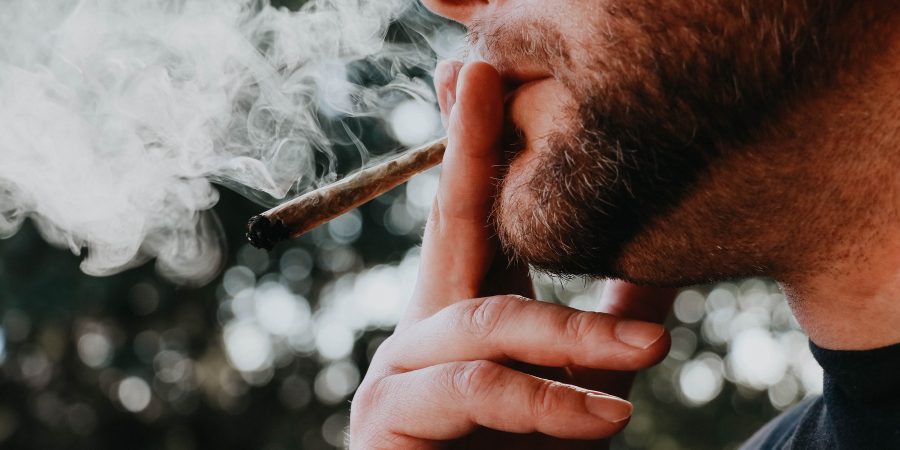
Cannabis use in the UK
Cannabis is the most widely used illicit drug in Britain, with The Office for National Statistics reporting that 6.8% of adults in England and Wales used cannabis in the year ending March 2024. That equates to around 2.3 million people, proof that this isn’t a niche concern.
Among young people in the UK, the numbers are equally worrying. In 2023, 6% of pupils aged 11–15 reported using cannabis in the past year, while 17% said they had been offered it.
In 2023–24, 21.4% of adults entering drug and alcohol services in England listed cannabis as one of their problem substances.
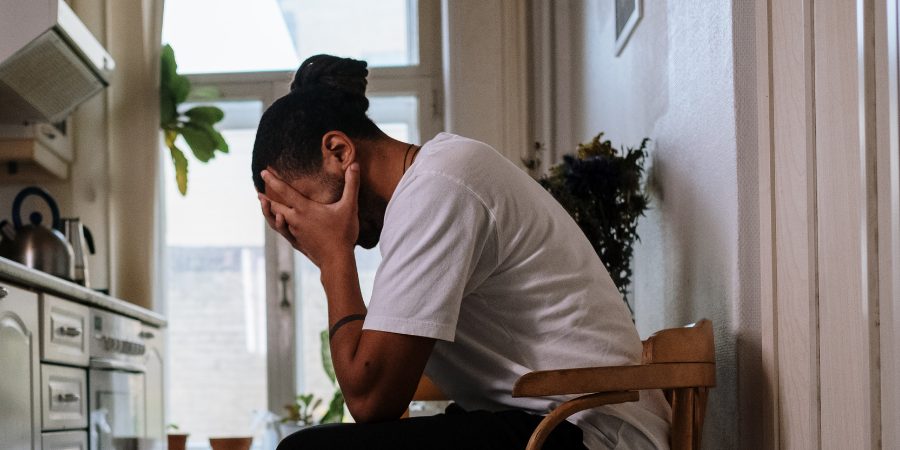
What these stats show is that attitudes towards cannabis in the UK have shifted. Conversations around decriminalisation, the rise of medical cannabis and the explosion of CBD products have all softened how people view the drug. Gone are the days of scare campaigns about the “devil’s lettuce” or keeping use entirely under wraps.
But the treatment figures tell another story. While society may have eased off the brakes, the reality is that cannabis still brings people through treatment doors in huge numbers. In other words, the conversation might have changed but the harm hasn’t gone away.
What are the signs of cannabis addiction?
Recognising the signs of cannabis addiction is important, both for yourself and for those you care about. Because addiction often creeps in gradually, it can be easy to dismiss certain behaviours or changes as nothing serious. Being aware of the warning signs gives you the chance to step in early and build plans to prevent the problem from becoming more damaging over time.
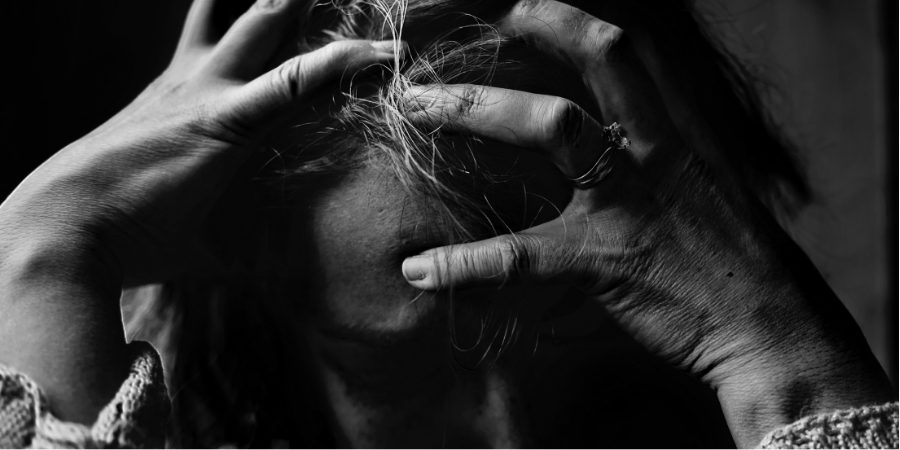
- Lingering bloodshot eyes
- Constant tiredness or sluggishness
- Persistent cough or wheeze (if smoked)
- Noticeable changes in appetite or weight
- Irritability or anxiety when not using
- Struggles with memory or concentration
- Low mood or emotional “flatness” without cannabis
- Intense cravings when cutting down
If some of these signs sound familiar to you, it could be time to put your own or your loved ones ‘ cannabis usage under the spotlight for a closer look.
Do I have a cannabis addiction?
Whenever you’re using a substance like cannabis, one that carries the risk of misuse, dependency or addiction, it’s important to pause now and then and reflect on your relationship with it.
A helpful way to do this is by asking yourself some honest and sometimes difficult questions, such as:
- Do you need cannabis more often or in larger amounts than before?
- Have you tried to cut down and struggled?
- Do you spend a lot of time thinking about, getting or using cannabis?
- Has cannabis caused problems with work, study or relationships?
- Do you feel anxious, restless or irritable when you don’t use?
- Has cannabis taken the place of hobbies, goals or people that used to matter?
Answering “yes” to one or two of these questions doesn’t automatically mean you have a cannabis addiction, but it does suggest it may be worth looking into more closely.
Is there help available for cannabis addiction?
There is help for cannabis addiction and you don’t have to go through it alone. Whether it’s for you or someone close to you, UKAT offers the support needed to make recovery possible. Deciding to quit is the first step toward regaining health and balance and with the right help, lasting recovery becomes far more achievable.
Our cannabis addiction treatment programmes are designed to address both the physical and emotional sides of dependence, guiding you through cannabis detox, rehab treatment and into long-term stability. If cannabis is beginning to take over daily life, reach out today to understand how our programme works and how we can support you or your loved one on the path to recovery.
Frequently Asked Questions
(Click here to see works cited)
- Erridge, Simon, et al. “Illicit Cannabis Use to Self-Treat Chronic Health Conditions: A Cross-Sectional Study from the United Kingdom (Preprint).” JMIR Public Health and Surveillance, vol. 10, JMIR Publications, June 2024, pp. e57595–95, https://doi.org/10.2196/57595
- Spinazzola, Edoardo, et al. “Are Reasons for First Using Cannabis Associated with Subsequent Cannabis Consumption (Standard THC Units) and Psychopathology?” BMJ Mental Health, vol. 28, no. 1, BMJ Publishing Group Ltd, Royal College of Psychiatrists and British Psychological Society, Aug. 2025, https://doi.org/10.1136/bmjment-2025-301810 Accessed 27 Aug. 2025.
- Koram, Kojo. “The NHS Can Prescribe Medical Cannabis. So Why Are Desperate Patients Being Forced to Go Private?” The Guardian, 24 Mar. 2023, www.theguardian.com/commentisfree/2023/mar/24/nhs-medical-cannabis-patients-private-law-products
- Moriarty, John and Kathryn Higgins. “Effects of Peer Network Interactions on Adolescent Cannabis Use.” Journal of Criminal Psychology, edited by Professor Mark Shevlin, vol. 5, no. 2, May 2015, pp. 75–91, https://doi.org/10.1108/jcp-01-2015-0003 Accessed 16 Dec. 2020.
- Connor, Jason P., et al. “Clinical Management of Cannabis Withdrawal.” Addiction, vol. 117, no. 7, Nov. 2021, pp. 2075–95, https://doi.org/10.1111/add.15743
- “Cannabis-Induced Psychosis – an Overview | ScienceDirect Topics.” Www.sciencedirect.com, www.sciencedirect.com/topics/neuroscience/cannabis-induced-psychosis
- Galimberti, Marco, et al. “The Genetic Relationship between Cannabis Use Disorder, Cannabis Use and Psychiatric Disorders.” Nature Mental Health, May 2025, https://doi.org/10.1038/s44220-025-00440-4
- Jacobus, Joanna and Susan F. Tapert. “Effects of Cannabis on the Adolescent Brain.” Current Pharmaceutical Design, vol. 20, no. 13, 2014, pp. 2186–93, www.ncbi.nlm.nih.gov/pmc/articles/PMC3930618/
- for, Centre. “Drug Misuse in England and Wales.” Ons.gov.uk, Office for National Statistics, 12 Dec. 2024, www.ons.gov.uk/peoplepopulationandcommunity/crimeandjustice/articles/drugmisuseinenglandandwales/yearendingmarch2024?utm_source=chatgpt.com
- “Smoking, Drinking and Drug Use among Young People in England, 2023.” NHS Digital, 17 Oct. 2024, digital.nhs.uk/data-and-information/publications/statistical/smoking-drinking-and-drug-use-among-young-people-in-england/2023/part-8-drug-use-prevalence-and-consumption
- Office for Health Improvement & Disparities. “Adult Substance Misuse Treatment Statistics 2023 to 2024: Report.” GOV.UK, 28 Nov. 2024, www.gov.uk/government/statistics/substance-misuse-treatment-for-adults-statistics-2023-to-2024/adult-substance-misuse-treatment-statistics-2023-to-2024-repor .



